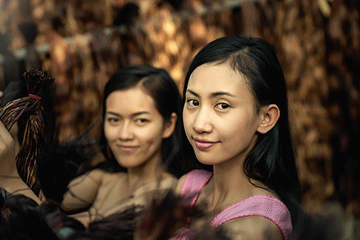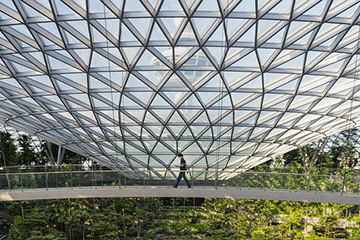Bulletin News

03/20/2023
In late 2019, education scholar Jeremy Jiménez was in Singapore, surveying and conducting focus group interviews with more than 300 students at two international schools.
What the assistant professor in SUNY Cortland’s Foundations and Social Advocacy Department learned about growing up in autocracies from the data forms the basis for his planned Wednesday, March 22, talk titled “Don’t Say ‘It’s Going to Be Okay’: Learning and Teaching in the Age of Climate Collapse.”
The lecture will begin at 4:30 p.m. in Moffett Center, Room 115.
A reception to welcome Jiménez precedes the discussion at 4 p.m. in the adjacent Brooks Museum.
The talk continues the university’s yearlong 2022-23 Rozanne M. Brooks Lecture Series on the theme of “The Culture of Truth.” The series of talks and accompanying receptions are free and open to the public. Seating will be limited and cannot be exceeded so please come early to secure a seat.
Jiménez’ talk is based on his 2021 article, “‘Don’t Say It’s Going to Be Okay’: How International Educators Embrace Transformative Education to Support Their Students Navigating Our Global Climate Emergency,” which he and Laura Moorhead, a Journalism Department faculty member at San Francisco State University, wrote for the international, peer-reviewed open access journal, Education Sciences.
While he was in Singapore, faculty and staff members at participating schools shared their perspectives and strategies to empower their students to become change agents through pedagogical techniques such as hands-on learning, systems thinking and service learning, Jiménez said.
“Just prior to the COVID-19 pandemic, many teenagers worldwide had engaged in school strikes to demand that their voices be heard regarding our climate crisis,” Jiménez said.

“This presentation highlights insights gleaned from these students’ views on the climate strike movement, specifically, and sustainability in education, broadly.”
“How do these participants navigate expressing their assessment of public responses to our climate crisis in the specific context of living in an authoritarian political environment that limits free expression?” he said.
“And how do they simultaneously help their students imagine positive future alternatives in the midst of increasingly dire climate realities?”
Jiménez, who joined SUNY Cortland in fall 2017, has a Ph.D. in international and comparative education from Stanford University in California, where he also earned an M.A. in sociology. He has an M.Ed., social studies education from Rutgers University in New Jersey, in which state he is certified to teach both secondary social studies education and psychology. He received dual bachelor’s degrees in history and psychology from Rutgers College.
Among the courses he has taught are International and Comparative Education and China & Taiwan: One Culture, Two Political Systems, geared to students who plan to study abroad.
In summer 2018, Jiménez was an invited lecturer at the Xian Normal University, Xi’an, China, where he taught a course to education doctoral students titled International Textbook Research.
Also, this spring:
Adam Laats, an assistant professor in Binghamton University’s Department of Teaching, Learning and Educational Leadership, will explain on April 12 why the creationism culture wars never end, in a presentation called “Evolution and All That: Why Americans Can’t Stop Fighting about Creationism.”
This year’s series encompasses how, in the last couple years, Americans have reopened disputes about ideas that once seemed settled.
Books and topics are being banned in classrooms, social and news media is plagued by misinformation that is swallowed by many, and the reality of the very science that underpins much of the modern industrial world has come into question. Over the last decade, “truth” has seemed to become a rare resource.
The Brooks Series honors the late Distinguished Teaching Professor of sociology and anthropology emerita at SUNY Cortland Rozanne M. Brooks, whose donated special collection of ethnographic objects to the Sociology/Anthropology Department established the Brooks Museum in 2001.
The 2022-23 Brooks Lecture Series is sponsored by the Cortland College Foundation and Cortland Auxiliary. For more information, contact series organizer and Brooks Museum director Sharon Steadman, a SUNY Distinguished professor and chair of SUNY Cortland’s Sociology/Anthropology Department, at 607-753-2308.
Images courtesy of Pixabay.

